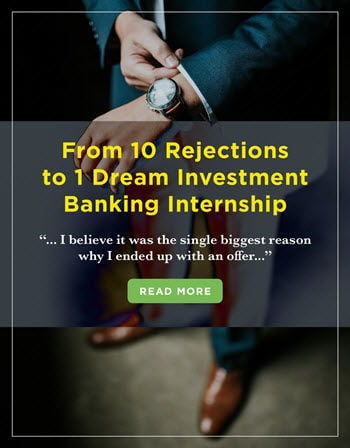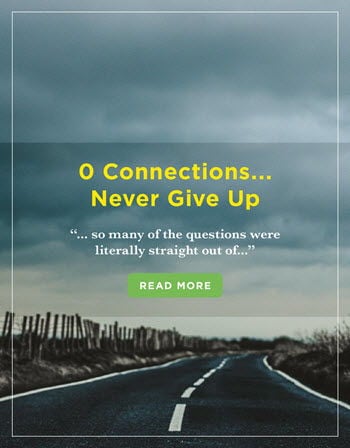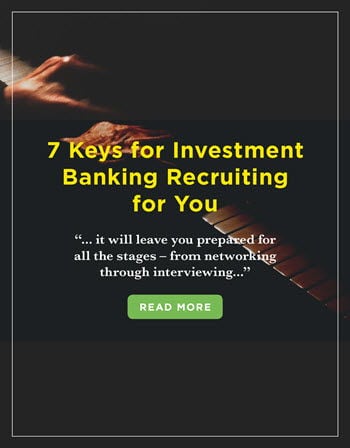How To Talk With Irrational PWM Clients?
Not inPWMmyself so wanted to hear thoughts from some of ourWSOprivate wealth members.
Anyone in finance inevitably gets asked personal finance questions from friends and family. Over the years, I've helped quite a few with the basics of portfolio diversification and generally explaining to them how the market and various investment options work.
但是,每隔一段时间,您将获得非理性的朋友或家人,他们准备在以下任何一项上储蓄Yolo:Dogecoin,Tesla,Gold或其他一些过度宣传的股票或想法。
While it would seem easy to talk most people out of this, I find this to be the hardest type of person to convince. Any tips for walking someone back from the edge when they have an insane investment idea?
What do you do with yourPWM当有人想用他们的投资组合做一个危险的Yolo赌注时,客户?很想听听您的策略。也肯定会喜欢thebrofessor的想法。





Comments (14)
I used to take the approach you're taking, trying to teach everyone personal finance principles and assuming that they'll listen to you because of your experience. more often than not, people don't take your advice seriously and are coming to you for either confirmation of an existing trade they've already made, a trade that's gone south and they're having buyer's remorse, or they want to appear smart and are using all sorts of jargon (I've actually had someone in tech ask me aboutbackwardation在石油市场上,我认为我的眼睛很厉害,偏头痛)。
经过多年的宣讲福音,我放弃了,他们都可以马上他妈的。如果有人问我建议,我会问他们一个问题:“您是因为您已经做到了,还是真的想要我的意见?”通常他们明白了。如果他们是认真的,并且我们处在一个不可讨论的环境中(说我们在一个男人的旅行中喝咖啡,而放荡的尚未开始)我总是在游戏中皮肤的背景下构图。如果我不拥有它或遵循股票,我不会胡说八道,我只是说:“我们不为客户拥有它,而我个人不拥有它,这是我的意见”,有时我会被压迫(通常关于加密货币),人们会说“但是....”,然后插入一些关于我不参与的资产课的半烘焙论文,我拥有它,但我没有。我希望你能赚很多钱,但我对此没有意见。”
I get paid for advice. my dumbass frat bros and family members who aren't clients don't get trading advice for free. NOW, if someone wants ACTUAL personal finance advice like how 401k's work, roth v traditional, how taxes on ISOs/RSUs work, should they do an ILIT, how to budget, should they refinance, how have I arranged my personal finances (hint: all about antifragility), I will talk to them all day long, because those are principles, not positions. those conversations are the minority however, more often than not it's one of the situations I described above.
TLDR: most people don't want advice, so you should find a way to exit those situations. like if someone says "what do you think about XYZ?" if you don't own it, you don't have an opinion (even if you do)
我认为这对休闲朋友来说是一个很好的建议。感谢您的回复!
However, how would you approach it where you really care about the outcome? For example, your best friend has some super stupid investment thesis or grandpa wants to YOLO on bitcoin?
Also, just curious, but what do you do when a client is deadset on a YOLO? Do you have to just go with it and document the conversation?
I almost always care about the outcome, I firmly believe there is no finite amount of wealth and with proper planning everyone can become financially independent, I genuinely want to see everyone succeed because I don't think that success comes at the expense of others, so my response doesn't vary based on whether or not I truly care about them. my language might but the message is the same.
如果your grandfather wants to YOLO his entire retirement on bitcoin then I'd question his senility and you should ensure he either has ample assets outside of this bet or that whoever his financial POA happens to be is aware of his intentions.
如果您的朋友有一个愚蠢的投资论文,他需要能够犯自己的错误并向他们学习。如果他真的想要您的意见,请给予,然后继续前进。您可以关心您的朋友,而不必关心他们如何花钱。
我没有客户,做你描述。如果a client wants to take a one-off position on a risky play, I tell them how I approach these things (risk first, always, our brains tend to focus more on upside than downside and that's exactly backwards), tell them how much a total loss could set them back, never use leverage, and then accept the order unsolicited. about 5 years in, my very first client wanted us to invest his portfolio in a way that we weren't comfortable but still retain discretion on it (essentially he wanted us to have all the accountability with none of the input), and I promptly fired him. my U4 is sacred, and I don't have time for people that pay for advice but don't take it, that's a landmine waiting to get stepped on
I am really interested to know what this means more concretely - I've never heard this before. I've read taleb's books but would love to hear how you think this is best applied in personal finance.
"one for the money two for the better green 3 4-methylenedioxymethamphetamine" - M.F. Doom
sure thing man, I try to arrange my life to be antifragile, but sometimes it ends up just being avoiding fragility and surviving rather than "gaining" from disorder (taleb's actual definition). let me share what I mean.
in life, random shit will happen that is completely outside of your control. you cannot prevent chaos from entering your life, but you can attempt to arrange your life in such a way that you either survive or you thrive in the face of chaos. for example, anyone who works in markets knows your income is not guaranteed, and unless you own your own shop, your job isn't guaranteed, but even if you do, your clientele isn't as people can pull their money, markets can go haywire, etc., so you better be deliberate with how you manage your work. for me, I don't take outsized bets in any one thing, my portfolio is very well diversified (30-40 stocks which covers US LC sector,thenETFs/MFsfor otherasset classes), and I have a quality bias. the antifragility thing here is that quality investments tend to hold up better when chaos strikes, and this strategy will keep me from the next AMZN to be sure, but it will also keep me from the next valeant, wework, or from buying ZM at $580/shr. often times when chaos strikes our practice, we emerge stronger, because our portfolios have held up better and our clientele either stay with us or refer others to us.
this also comes in with budgeting. I approach my budgeting like this: is the expense I'm about to undertake something I'd do if my income fell by 30%, 40%, 50%? if no, I think twice about it and pass more often than not. this mostly shows its face in things like recurring expenses. for example, I don't have a country club membership even though I could afford one. it carries with it certain lifestyle expectations and spending expectations that I quite frankly take issue with and don't have an interest in. if you drop $50k to join a club and are paying a 2nd mortgage every month to stay a member, you're introducing fragility to your life. that's not an easy expense to extricate from your life in the event shit goes wrong, so I prefer to just play golf at public/semi private courses when I do play, and keep that flexibility (plus, what if I move?). it should go without saying, but I live far below my means, I save 30% of my income (401k, megabackdoor roth, deferred comp, etc.) before the paycheck hits my bank account, and I maybe spend 60% of that number on a regular basis. if shit hits the fan, I'll be fine.
更多的预算。理想情况下我不会有任何黛比t, but I have some which I keep minimal. my mortgage payment is less than 9% of my gross income and I only pay 70% of it (wife works, she pays the other portion), so if we go through another stagflation episode and we lose a bunch of clients, I'll still have my house and be able to pay my bills. I think too often people use rules of thumb which aren't designed for antifragility. that's their prerogative, but I sleep easy knowing a whole bunch of shit can go wrong and I can survive and likely use the extra cash I'm not throwing into debt for opportunistic things, maybe it's helping a family member who's down on their luck, maybe it's just buying stocks on the cheap, maybe it's reinvesting into my business to protect my clientele, this has not only the benefit of my personal finances being secure, but it minimizes the worry I experience while working, which I think is beneficial for my clients. if I'm not worried about making my mortgage payment, country club payment, and private yoga lesson payments for my wife (she works out with me in our home gym), then I go into work less stressed and am already one step ahead of the competition. and finally, I am a bit of a minimalist. I rarely buy new clothes unless I'm in Italy where I splurge a bit, I keep my iPhones well past their useful life, I don't have expensive shit in the house that I'm attached to. if the zombies start coming, I just grab my wife, my gun, and my surfboard and I'm outta here, I can leave everything behind. if you have a simple life, you are more nimble and able to weather the inevitable storms you'll encounter.
this also goes into career which isn't exactly personal finance but it's related. I have a job where I can theoretically work from anywhere. my clientele by and large would follow me wherever I went, be it Florida, Costa Rica, or Iberia. so if shit goes South here in the USA in a big way, I'm mobile. I don't anticipate those things happening, but I'm ready for some unknown event that could smack me between the eyes and I'd like to think my career is nimble enough that I can just pick up, move elsewhere, and emerge from the crisis better than I entered it. I think this same thing applies if you have a special skillset that isn't tethered to one location or temporary thing. for example - social media marketing. I view this as a temporary thing that can definitely make money but exposes you to EXTREME fragility. all it takes is one thing for your golden goose to ban you for life and then your entire source of income evaporates, you have no backup plan (unless it's a side gig). ditto for accountants who are experts in some esoteric part of the tax code. well if the IRS changes that, you're completely fucked. on the other hand, if you know how to trade foreign currency, lead people, develop land, build a house, pilot a ship, raise cattle, etc., you'll be in demand under the vast majority of situations.
我把antifragility还有其他方法nto my life beyond personal finance, like eating dirt, drinking tap water, lifting weights, do intense cardio (swimming and running, not a cyclist), kickboxing (show me a kickboxer with osteoperosis), using the sauna, not using sunscreen 100% of the time (I'm mixed race so this is easier for me than someone who may be 100% irish and lives in the south), and so on. in closing, let me say this. I do not lay awake at night thinking about what could go wrong. one of the benefits of approaching life this way is you actually worry less. when corona hit, my income tanked along with everyone else whose income is denominated in AUM, but my life didn't change at all for financial reasons. the way I look at it is like this, by incorporating these principles into my life, I'll be good either way. if things continue to go well, of course I'll benefit, and while I'll never make Barron's for being America's top performing advisor, I'll make more money, get more clients, etc., and if shit hits the fan, I'll be fine as well for all the reasons I describe above. it's difficult because you have to shun lifestyle enhancement and that's way easier said than done. we can go there if you want, but I've already written too much and I feel bad for detracting from the original purpose of the OP
Ut ea eum doloribus ut repellat deserunt voluptatum maxime. Distinctio animi fugit maiores maiores. Animi nihil et quam aut ducimus veritatis nostrum non. Fugiat eaque voluptate aut et numquam necessitatibus est. Ipsum voluptatem dolorum quo sunt ea sed eligendi quia.
查看所有评论 - 100%免费
WSO取决于每个人都知道某事时能够参与进来。解锁您的电子邮件并获得奖金:6 financial modeling lessons free($199 value)
orUnlockwith your social account...